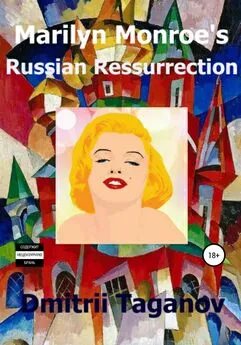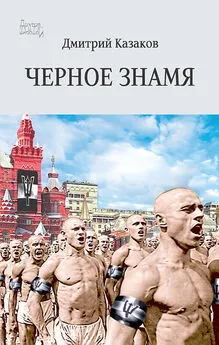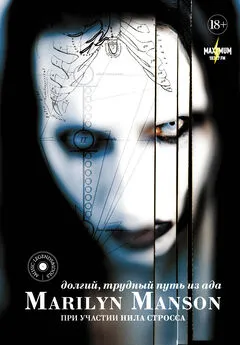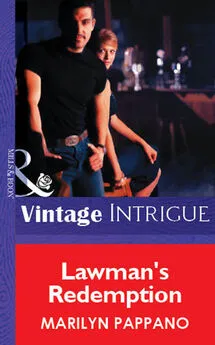Dmitrii Taganov - Marilyn Monroe’s Russian Resurrection
- Название:Marilyn Monroe’s Russian Resurrection
- Автор:
- Жанр:
- Издательство:неизвестно
- Год:2021
- ISBN:нет данных
- Рейтинг:
- Избранное:Добавить в избранное
-
Отзывы:
-
Ваша оценка:
Dmitrii Taganov - Marilyn Monroe’s Russian Resurrection краткое содержание
Marilyn Monroe’s Russian Resurrection - читать онлайн бесплатно ознакомительный отрывок
Интервал:
Закладка:
The most brave and cool of them bought old or stolen equipment, and hammered together teams of crazed from the lack of money men, alcohol-hungry and ruthless. Bribing or intimidating corrupt and defenseless foresters, getting permits from them, these predators chopped down twice or thrice as much, leaving only bald hills that have been once thick with beautiful north-Russian woods. In the nights, with the hysterical roaring, groans, and squeaks overloaded trucks hauled their lumber through long back roads to the Baltic ports. Reaching the pierces, trucks with no delay drew near to cargo ships with Scandinavian flags, and a sharp-clawed paw of the crane hurriedly grabbed northern fir-trees and carried them down to the deep holds. This hard men’s lumber was paid on the spot, immediately, with cash from the cheap canvas bags. Packs of the money, tied up by rope bands, were hurriedly counted by the truck’s head lights on its hot and steaming radiators. No one ever tried to cheat here, for these neat Europeans were really afraid of the wild men from the woods.
Ivan Rebrov worked in the team of arrogant and impudent guy, Stepan, who was just born to do this murky timber business. Everybody, who had any power on these long roads to the port, was well bribed by him, and his trucks with lumber roared to the sea almost every night. But he was always late paying his hardworking men, and that day their pay was badly delayed, too. His men, used to vodka from almost childhood, and now weeks from their last drinks, could only stealthily curse their boss: they wouldn’t get a job anywhere else here. Probably, their boss delayed money deliberately: less vodka, more timber to the port.
Ivan Rebrov, as young as he was, also couldn’t live and work in the frozen woods without vodka. Even in the boarding-school he frequently got drunk not only with his gang, but also with their “educators”. Those were local village guys that couldn’t get any other job before army enlistment. Sometimes they even drank together, or loaned money for a bottle when their pupils were out of money they usually got for cranberries or mushrooms sold to a girl at mobile shop.
In February once, late in the dark, Rebrov and the driver returned with a load of lumber from remote allotment; a severe frost in the woods, in their stomachs nothing but hunger, and both in great need of a drink. Their truck struggled forward over the narrow bumpy log-path in the snows, its headlights pushing aside crowded at the road black timber. Suddenly, behind the turn down the hill, where they worked all last week, two rubies of tail lights flared up under truck’s headlights. It was plain whose jeep stood there in this midst of dense forest: Stepan, the boss, arrived to inspect with master’s eye the stacks of his ready to howl timber.
“Stop here!” suddenly and unexpectedly for himself Rebrov said to the driver. The heavy truck groaned and stopped. In the dark Rebrov went by tractor trail to the timber stacks, and the anger as a cat with its claws tore on him. He was going just to get some money his boss owed them, because he badly needed a drink, and he was bored to death with potatoes’ meals of their team cook. But when he saw Stepan with a flashlight between the stacks he pulled out his knife. Rebrov thought that he would simply show this knife to Stepan, and the boss would understand: his hard workers are desperate, just on the edge without money. But boss, Stepan, had heard the roar of the truck, and now stood there looking cautiously at someone coming to him in the dark. In the forest a man senses a danger clearly, and Stepan sensed it immediately. When Rebrov was closer and he could make out in the dark his stony face, Stepan picked up two-yard long piece of timber and got ready. Closer, when they saw the eyes of each other, both men understood it was too late to talk. Stepan began to raise his timber, but Rebrov suddenly threw his fur-hat up and forward. Stepan glanced upwards, uncovering his bare neck under thick collar of sheepskin jacket, and immediately the knife entered his bare flesh under Adam’s apple.
Stepan still wheezed and spattered the snow with bloody foam out of his ripped throat, but Rebrov already threw open his jacket and fumbled through his pockets. From the wallet he threw everything out on the snow and picked up the money. There wasn’t much – who would go with money to the forest.
When they moved on, the driver asked, “Talked to him?”
“No.”
They drove in silence to the settlement, but nearing the store Rebrov said, “Stop here.”
With moans and groans heavy log transporter stopped. In the store Rebrov bought two bottles of vodka and a pair of pork stew cans, and he was out of money again. In the truck’s cab he handed one bottle and a can to the driver. Driver looked cautiously into Rebrov’s eyes and didn’t move to take it at first. But then took it all right, and shoved it under his seat.
“Utter a word that we stopped there, and I’ll saw your head off,” simply and softly said Rebrov.
The driver, huge middle-aged man, just looked into this youngster’s eyes, nodded and said nothing.
The jeep was soon found, and police came. They walked and looked over freshly and heavily snowbound allotment with high timber stacks and left it until spring. They found Stepan only at the end of April, when the snow melted in the clearings, and this snowdrop , as police call them, showed up.
“The lousy gambler!” Rebrov thought of the banker Levko, looking through the window. “It is my bank, mine. I beat all the money from the debtors ten years ago – they wouldn’t return you a cent!”
That was true. Indeed, after the default of a ninety-eighth, when even the state itself refused to repay its debts, the winged phrase emerged among shady businessmen, “Only cowards repay their debts”. Bankrupted Levko gave his new acquaintance a list with a dozen of names and multiple-digit sums against each one and said to bandit Rebrov, “Of the money you knock out of these gents half is yours. And then we’ll launch a new bank together.” Bandit Rebrov knocked the debts from almost all of these gentlemen. The only one who did not respond to his arguments was dead the next day. With this money they opened a new bank, which Levro proposed to name "Straight Credit". It sounded respectable, honest, but a banker and gambler Levko meant something different: a winning hand in a poker, Straight Flush.
Outside the window, down in the village, dogs barked, late roosters cried, and these simple homely sounds soothed Rebrov. Years ago this time in the mornings his mother returned home from the barn with a steaming bucket of milk. She kindled fire in the stove, and with the crackling of wood their dark morning hut turned bright and joyful.
When Rebrov by sheer chance came to Moscow, he could not really believe that one can permanently live in this city and stay normal and happy. When he pocketed his first millions, he immediately moved out of city. However, when the realtor took him to see a newly built house in the “elite” cottage settlement that sprang then around Moscow with mostly corrupt or criminal money, and when he saw these stone mansions with turrets, saw faces of this “elite”, that would become his neighbors, he didn't even bother to look what’s inside, and just turned and walked back to his car.
He told his realtor to find him better some land in a simple village, where he could build a house of his dream. Realtor found in a week this beautiful but crumbling village with four neighboring families dreaming to get out of here and become city dwellers. Rebrov bought them for a million greenbacks four apartments in the capital, burned all their huts, sheds, and started new construction. He built his house of the northern fir-trees, almost a yard thick. He hewed house frame himself beaming with pleasure, and the hired carpenters just smiled with amazement and clicked their tongues.
All of his land Rebrov planted with apple-trees. But then he made a mistake that he didn’t know so far how to set right. He fenced his land with a wall of pressed tin sheets. That was quite widespread way for newly rich to hide away from the peering eyes. Outside, such a brightly painted fence looked good. But inside, one’s look was obstructed everywhere by close and monotonous wall that immediately evoked a disturbing feeling of being confined to some penitentiary. Rebrov never had been in a jail being convicted, with God’s mercy. But he spent three months in Butyrka preliminary prison, waiting for a court, on charges of plunder. Nothing was proved, but Rebrov learned there to appreciate his freedom.
Rebrov was in love just once when he was eighteen, and as it turned out the last time too. She lived in the neighboring village, on other side of the lake. That village was much bigger, and there was even a food store and elementary school with two classes. Adolescent Ivan Rebrov went to his school on a horseback: every day six miles around the lake, and six back. Only in January, with wolf weddings in full play, when they ran baring their teeth even into the villages, his father harnessed his horse in a sledge, threw inside an old rusty shotgun and drove his son to the school. But that happened only if his father could be livened up in the morning, because in the evenings he was mostly dead drunk.
From May till late autumn, if there was no high winds, young Rebrov sailed to that village by boat. The boat was made of two thick aspens, hollowed out and fastened by steel bolt. They didn’t build boats any other way here. On the banks of numerous forest lakes one could always find such a boat, roiki , all of them for everyone’s use. Very stable and lifting, they did not require any maintenance: overturned in late autumn, with aspens bottoms up, they were left thus until spring. They were frequently used to transport cattle to far pastures, and less frequently, coffins, for the last trips by lake to the cemetery.
The cemetery was even further behind that village, on a hill by another lake. There were buried all Rebrov’s grandfathers and grandmothers, there also rested in peace his beloved mother. Near the cemetery once stood a beautiful church, that was seen miles away, but in the thirties atheist bolsheviks dismantled it to use the quality old bricks and its bells for scrap. They left only high bell-tower, obviously, for some military reasons. Now this tower, declined and decayed, with thin birches growing on the crumbling bricks high over the ground, stood as if looking with sorrow at surrounding forests, lakes, the depopulated villages, recalling better life there: proper, godly and sober.
Ivan and Masha went to school together for only two years. From the third year he was sent to boarding school, and Masha was taken to her relatives living in the district center, having there a good high school. They saw each other and played together every summer, but real love came to Ivan Rebrov only at eighteen.
He worked then again in the woods, but with another team. He worked hard, sawing the timber and hauling it by the trucks. They paid better there and more regularly after that grim incident. Rebrov did not drink much and saved all the money: he wanted to repair his house and add one more room, good enough to bring his wife into. They both were waiting for spring to marry, when Masha will be eighteen, too.
Rebrov worked all that winter on distant allotments. Almost every week someone of their team went back home for a short stay to one of the neighboring villages, and Rebrov exchanged with his Masha gentle and loving letters. Rebrov never went home himself and didn’t see her several months: he wanted to test their love, because he had to go to the Army soon. He tested their love all right, though it didn’t endure their winter parting. By the end of the winter fewer letters reached the snowbound woods, and they became kind of formal and dry, and by the early spring they stopped coming. In April one fellow that came from the neighboring village frankly revealed to it to Rebrov, “She’s having a good time, your Masha.”
Читать дальшеИнтервал:
Закладка:










